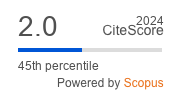How does organizational space help organizations cope with the challenges of ambidexterity and continue to innovate? A space reorganization experiment in a transitioning organization
DOI:
https://doi.org/10.23726/cij.2018.747Keywords:
Organizational space, organizational change, ambidexterity, innovation, coordination, integration, differentiation.Abstract
Influenced by internal and external factors, organizations are increasingly operating in divergent fields that require them to develop ambidextrous competencies. While research relating ambidexterity to aspects such as strategy and innovation has reached a maturity stage, we still know little about the strategic processes that allow organizations to implement ambidexterity, and in particular about the role that organizational space can play in an organization’s attempt to become ambidextrous. By conducting a qualitative study in the medical and scientific division of the Italian National Olympic Committee trying to incorporate an exploitation logic in addition to its dominant exploration logic, we describe a two-phase experiment in which the organization leveraged the organizational space as a transition tool towards ambidexterity, while also trying to maintain its exploration innovation-driven competitive advantage. We find that organizational space can be used as a coping tool against identity and competence threats triggered by organizational transition to ambidexterity, affording both integration and differentiation of the ambidextrous logics.
Downloads
Published
How to Cite
Issue
Section
License
Authors who publish with this journal agree to the following terms:
- Authors retain copyright and grant the journal right of first publication with the work simultaneously licensed under a Creative Commons Attribution License that allows others to share the work with an acknowledgement of the work's authorship and initial publication in this journal.
- Authors are able to enter into separate, additional contractual arrangements for the non-exclusive distribution of the journal's published version of the work (e.g., post it to an institutional repository or publish it in a book), with an acknowledgement of its initial publication in this journal.
- Authors are permitted and encouraged to post their work online (e.g., in institutional repositories or on their website) prior to and during the submission process, as it can lead to productive exchanges, as well as earlier and greater citation of published work (See The Effect of Open Access).


